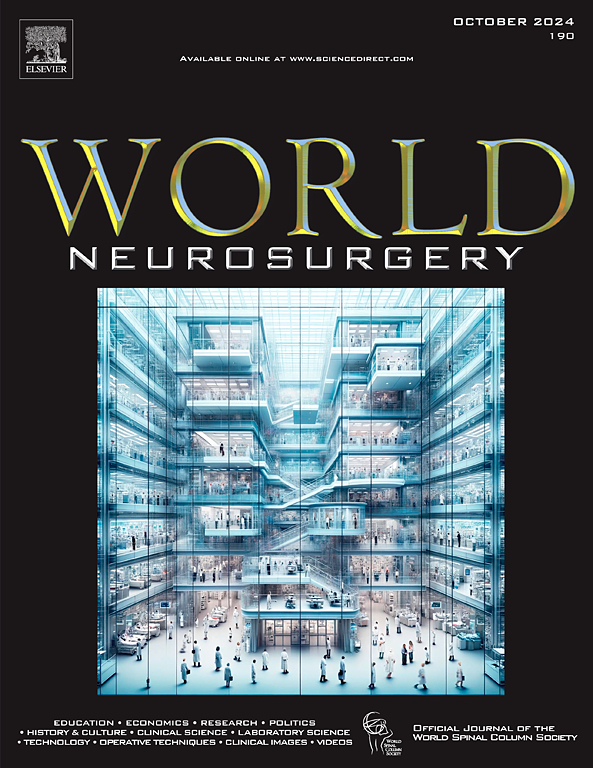导航障碍:在临床实践中推进神经磁共振成像技术-来自沙特阿拉伯技术专家的见解。
IF 2.1
4区 医学
Q3 CLINICAL NEUROLOGY
引用次数: 0
摘要
背景:磁共振成像(MRI)面临着各种挑战,包括扫描时间、可靠性、工作流程困难、处理复杂性以及对培训的持续需求。本研究旨在调查MRI技术人员在沙特阿拉伯各医院实施先进神经MRI技术时面临的障碍。方法:在沙特阿拉伯对216名MRI技术人员进行了全国性的横断面调查。参与者在有核磁共振扫描仪的设施中工作。一份有效的在线问卷评估了人口统计、经验、培训和高级MRI使用的障碍。结果:三分之一的技术人员能够操作不同的MRI扫描仪,而较小的比例(约五分之一)进行高级MRI程序。大约40%的人可以进行先进的图像处理技术,类似比例的人表示有信心处理神经放射学成像请求。培训的主要障碍包括缺乏合格的机构、行政支持不足和时间限制。教育程度是唯一显著影响培训参与的因素(p = 0.030)。相比之下,年龄、性别、地区、经验年数、当前医院类型、每天常规MRI病例量、医院可用MRI扫描仪数量以及先进MRI技术的可用性等因素与接受培训没有显著关联。结论:本研究强调了在沙特临床MRI设置中采用先进神经成像技术的重大障碍,包括有限的基础设施,培训不足和缺乏机构支持。这些挑战导致了技术人员的利用不足和信心下降。本文章由计算机程序翻译,如有差异,请以英文原文为准。
Navigating the Roadblocks: Advancing Neuro-Magnetic Resonance Imaging Techniques in Clinical Practice—Insights from Technologists in Saudi Arabia
Background
Magnetic resonance imaging (MRI) presents various challenges, including scan duration, reliability, workflow difficulties, handling complexities, and the continuous need for training. This study aimed to investigate the impediments faced by MRI technologists in implementing advanced neuro-MRI techniques at various hospitals in Saudi Arabia.
Methods
A nationwide cross-sectional survey was conducted among 216 MRI technologists in Saudi Arabia. Participants worked in facilities with operational MRI scanners. A validated online questionnaire assessed demographics, experience, training, and barriers to advanced MRI use.
Results
One-third of technologists were able to operate different MRI scanners, whereas a smaller proportion (approximately one-fifth) performed advanced MRI procedures. Approximately 40% could conduct advanced image processing techniques, and a similar proportion expressed confidence in handling neuroradiology imaging requests. The primary barriers to training included the absence of qualified institutions, inadequate administrative support, and time constraints. Education level was the only factor that significantly influenced training participation (P = 0.030). In contrast, factors such as age, gender, region, years of experience, type of current hospital, routine MRI caseload per day, number of MRI scanners available in the hospital, and availability of advanced MRI techniques showed no significant association with receiving training.
Conclusions
This study highlights significant barriers to adopting advanced neuroimaging techniques in Saudi clinical MRI settings, including limited infrastructure, inadequate training, and lack of institutional support. These challenges have contributed to underutilization and reduced confidence among technologists.
求助全文
通过发布文献求助,成功后即可免费获取论文全文。
去求助
来源期刊

World neurosurgery
CLINICAL NEUROLOGY-SURGERY
CiteScore
3.90
自引率
15.00%
发文量
1765
审稿时长
47 days
期刊介绍:
World Neurosurgery has an open access mirror journal World Neurosurgery: X, sharing the same aims and scope, editorial team, submission system and rigorous peer review.
The journal''s mission is to:
-To provide a first-class international forum and a 2-way conduit for dialogue that is relevant to neurosurgeons and providers who care for neurosurgery patients. The categories of the exchanged information include clinical and basic science, as well as global information that provide social, political, educational, economic, cultural or societal insights and knowledge that are of significance and relevance to worldwide neurosurgery patient care.
-To act as a primary intellectual catalyst for the stimulation of creativity, the creation of new knowledge, and the enhancement of quality neurosurgical care worldwide.
-To provide a forum for communication that enriches the lives of all neurosurgeons and their colleagues; and, in so doing, enriches the lives of their patients.
Topics to be addressed in World Neurosurgery include: EDUCATION, ECONOMICS, RESEARCH, POLITICS, HISTORY, CULTURE, CLINICAL SCIENCE, LABORATORY SCIENCE, TECHNOLOGY, OPERATIVE TECHNIQUES, CLINICAL IMAGES, VIDEOS
 求助内容:
求助内容: 应助结果提醒方式:
应助结果提醒方式:


